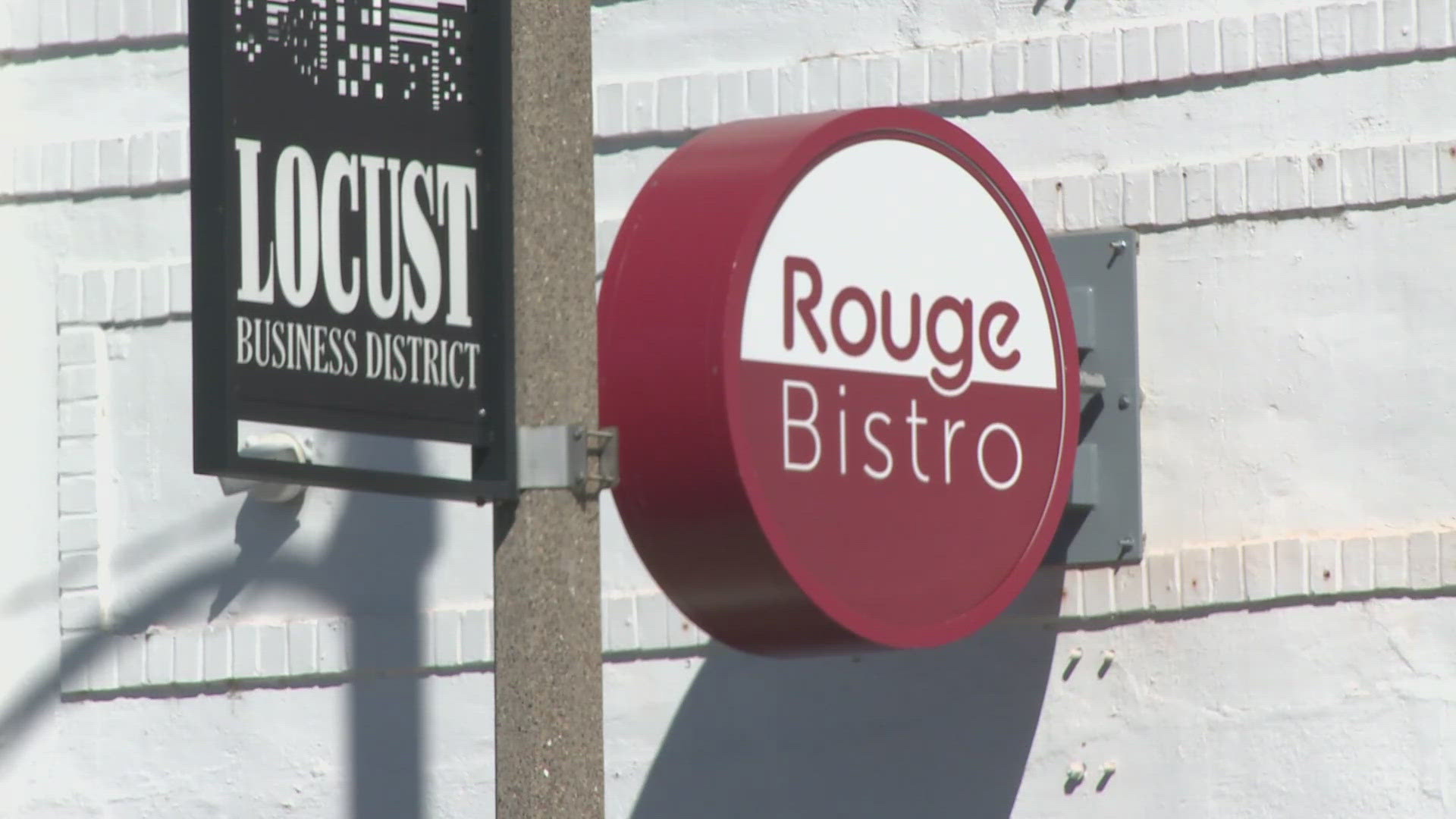ST. LOUIS — Julian Davis opened his doors in Midtown in the city of St. Louis earlier this year with his new restaurant, Rouge Bistro.
“I like Paris and French stuff. And then I like the color red," he said.
His biggest obstacle has been something he never expected.
“The biggest struggle is obtaining a city liquor license," Davis said.
This week, the city of St. Louis launched a new ordinance meant to simplify the liquor licensing process. It removes the need for businesses to collect signatures from nearby residents and businesses, long a source of frustration. But there’s a catch: the ordinance only applies to restaurants of a certain size.
"There's a stipulation, your building can't be any bigger than 4,000 square feet," he said.
Davis’ restaurant is much larger. Although Davis has a state liquor permit, he still lacks a city license. He couldn’t gather enough signatures from nearby businesses and residents, some of whom feared alcohol-related crime. To stay afloat, he’s been using a loophole: catering permits, relying on other licensed venues to provide alcohol and staff for events. This means he can only serve alcohol at limited, city-approved times. He said it’s crippling his business.
“It's just frustrating," he said. “To me it's silly that the city allows people that have no financial investment in you, whatever you're doing, to have a say on what you can do and when you can do it.”
Rasmus Jorgensen, a spokesperson for the mayor’s office, said the new ordinance is a step forward.
“So I think this is the best of both worlds," he said. He said it’ll help restaurants under a certain square footage. “So we're sort of getting out of people's way, making it easier for people to do those good things and then we're still making it so that people have to be responsible with it.”
Jorgensen told the I-Team: "We are confident that this improved process will enable businesses to start up faster and allow some businesses to open that previously couldn't because of this barrier. However, we are not able to say exactly how many businesses will benefit from this or what additional tax revenue they may produce. In 2023, there were 132 new applications and 1,036 renewals. However, because the updated process depends on some new criteria, we cannot say exactly how many of those would have been able to take advantage of this process.”
But while the city touts its new streamlined process as a step forward, for business owners like Davis, it’s yet another roadblock in an already uphill battle.
“Keeps me up at night," Davis said.
Davis’ situation highlights that while the city’s new ordinance may be a breakthrough for some, others, like his Rouge Bistro, are still navigating the same bureaucratic barriers. For them, the fight to operate legally continues.

